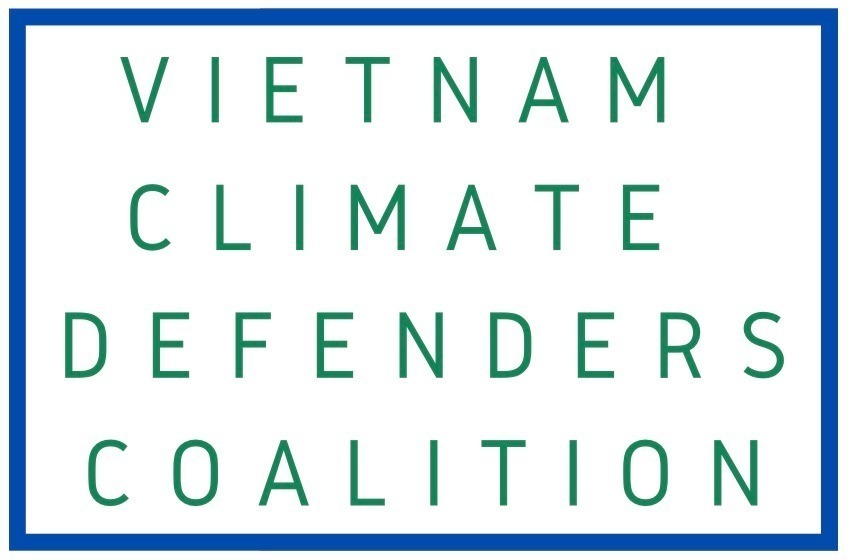FOR IMMEDIATE RELEASE: June 17, 2024
MEDIA CONTACT: maia@ripplestrategies.com
Report Released One Week Prior to Anniversary of Climate Leader Mr. Dang Dinh Bach’s Imprisonment for Speaking Out Against Coal
A new in-depth report about Vietnam’s Just Energy Transition Partnership (JETP) was released today, outlining the problems with the financing, governance, energy solutions, and participation necessary to achieve a truly just transition.
The report, “The Missing ‘Just’ in Vietnam’s Just Energy Transition Partnership (JETP),” examines Vietnam’s transition away from coal-based energy from a “just” perspective, and the obstacles standing in the way. It was commissioned by the Vietnam Climate Defenders Coalition, a group of over 30 international and regional environmental, climate justice, and human rights organizations.
The report was released exactly one week prior to the third anniversary of environmental defender Mr. Dang Dinh Bach’s imprisonment. He is currently serving a five-year sentence in a jail cell where temperatures exceed 110 degrees Fahrenheit (43 degrees Celsius) and his health is fragile. Serving three years in prison is also former Obama Foundation scholar, Hoang Thi Minh Hong, founder and former Director of the nonprofit CHANGE Vietnam.
Mr. Bach and Ms. Hong are two of six climate leaders who have been targeted and imprisoned in Vietnam, severely limiting – perhaps eliminating – genuine opportunities for consultation with civil society, an essential part of the JETP as set out in the Political Declaration establishing the partnership. Further, the arrests and wider fears of persecution in the environmental and energy sectors have restricted access to information, transparency and public participation in Vietnam’s energy transition process.
“The JETP can either be an impactful tool for meeting the climate crisis, or a waste of money on false solutions and business-as-usual,” said Maureen Harris, a Senior Advisor with International Rivers who coordinates the Vietnam Climate Defenders Coalition. “Now is the time for the governments and institutions involved in Vietnam’s JETP to make this choice.”
The report explores the JETP in relation to four key areas:
- Financing – The majority of the financing is offered in the form of market rate loans rather than grants. This arguably contradicts the “just” aspect of the JETP by compelling Vietnam to incur significant sovereign debt in order to finance the energy transition. Instead, international funding should be used to relieve the financial burden of the energy transition in developing and emerging economies and transfer it to wealthy nations that have contributed to the climate crisis with disproportionately higher CO2 emissions propelling their growth for decades. While the governments and institutions involved have obligations and policy commitments to human rights, public participation and against retaliation and reprisals, these are not reflected in the JETP financing framework.
- Governance and implementing mechanisms – There are multiple frameworks, government agencies, and partner organizations involved in Vietnam’s JETP implementation process; but an overall lack of clarity and policy frameworks dedicated to the “just” aspect of the transition. This pillar occurs largely as an afterthought rather than an integral aspect of the JETP framework as a whole. A lack of coordination with and between ministries and international partners further compounds a lack of transparency and accountability in the Vietnam JETP.
- Technology and energy solutions – There is no concrete timeline for phasing out coal in the JETP implementation plan, nor has the Vietnamese government made specific commitments to retiring any of its coal plants. Rather than prioritizing rapid and essential investment in Vietnam’s vast potential for renewables, energy plans include proposals to scale up carbon-intensive and environmentally harmful options associated with onerous economic costs, including reliance on imported liquified natural gas (LNG), destructive hydropower expansion and untested plans to convert coal plants to biomass and ammonia co-firing. The JETP should support investment in truly clean, sustainable, and resilient energy systems.
- Civil society participation – In recent years, six prominent climate leaders in Vietnam have been unjustly arrested and imprisoned on false charges. The arrests have taken place amidst increased crackdowns on independent organizations working on environmental and energy issues in the country. These targeted attacks severely limit–or perhaps eliminate–genuine opportunities for consultation with civil society – a fundamental aspect of a “just” transition.
JETPs are a relatively new intergovernmental financing mechanism aimed at supporting energy transitions in fossil-fuel dependent developing and emerging economies. Vietnam’s $15.5 billion JETP was established in December 2022 through an agreement between the Vietnamese government and the International Partners Group (IPG) – comprised of the European Union (EU), United Kingdom (UK), United States of America (USA), Japan, Germany, France, Italy, Canada, Denmark and Norway. Additional financing partners for Vietnam include multilateral and national development banks and private financial institutions coordinated by the Glasgow Financial Alliance for Net Zero (GFANZ).
The report makes the following recommendations:
- Immediately secure the release of the climate and environmental defenders unjustly imprisoned in Vietnam.
- Center civil society and vulnerable groups in the clean energy transition by enabling them to participate freely and safely in monitoring and decision-making throughout the JETP planning and implementation processes.
- Develop clear principles on “just transition” for JETPs, based on a broad participatory process and consistent with the international human rights obligations of government and business stakeholders and the safeguard policy commitments of financing institutions.
- Prioritize grants over debt financing in just transition funding pledges.
- Consult and improve coordination with and between ministries in Vietnam and international donors and institutions involved in supporting, financing and implementing the roll-out of the JETP.
- Ensure clear commitments, including a timeline, for coal phase-out and investment in truly clean, sustainable, and resilient energy projects over false solutions.
- Establish oversight mechanisms and adequate resourcing to ensure a robust “just” policy framework for implementing and monitoring JETP associated projects and processes.
# # #

